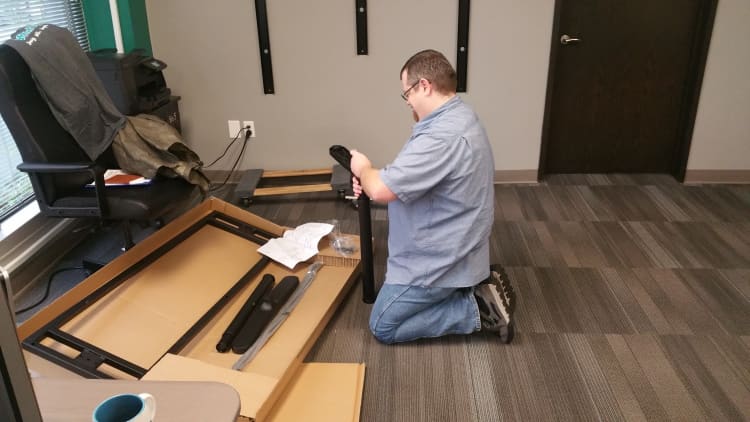In November 2012, Alex Klein showed his little cousin a 'raspberry pie,' or simple, super cheap computer. And six-year-old Micah posed a challenging question: Was there a computer that he could build himself? And could it be as simple and fun to play with as Legos?
Klein, then a 22-year-old fresh from Yale, was cutting his teeth in journalism, but the question from Micah redirected his career path.
The ethics, politics, and economics major became obsessed with the idea of deconstructing seemingly mysterious and foreboding computers so that anyone could touch and manipulate the technology, including, of course, Micah.
Klein had some history of probing behind the screen. When he was 10, Klein and his family moved from London to Seattle, backyard of Amazon and Microsoft. Everyone around him was deeply invested in all things tech, and so Klein started teaching himself the basics of computer coding.
Then the movie The Matrix came out. "I thought, okay, I am going to be Neo, that's what I want to do," says Klein, half-joking.
Later, the idea of building a computer that Micah could put together and play with stuck with the 22-year-old. Through a family connection, Klein met his co-founder-to-be, Yonatan Raz-Fridman, and they decided to try to build a prototype.
The co-founders moved in together, scraped together a small friends-and-family round of investment, and hacked together the first 200 kits. Those sold out entirely by word of mouth.
The moment that Klein knew their company, Kano, named after the founder of judo, had legs was when he took an early computer-building kit to a classroom. He recalls seeing a student, Khalid, then 9 years old, react with a sense of real empowerment.
He recounts the child saying: "'Well, you know, adults think we are a bit incapable because we are so young. But today we made a computer and powered it up with this Matrix code, so that makes us super children.'"
In November, 2013, the team, then half a dozen strong, launched a campaign to raise $100,000 on Kickstarter and ended up raising more than $1.5 million, including a pledge from Apple co-founder Steve Wozniak.
The kits are kid-oriented. They are brightly colored and there are stickers in the box. But they are not just for children. The youngest person to ever build a Kano is 4, says Klein, and the oldest is 81.
Kano hits the sweet spot for anyone with curiosity about what's behind the screen.
"It's this emerging space around giving people a more creative experience with technology rather than a consumptive [one]. And we kind of stand in that space with computer and coding systems, from the inside out, you make it yourself," says Klein.
Kano's first kit needed to be attached to a screen, but it has since released a kit that comes with its own. Each of these kits retails for $149.99.
And the London-based startup, which now has 50 employees, is in the midst of its second Kickstarter. This time it is raising money for kits that allow users to program their own pixelated screen, camera and speaker. Through the second crowdfunding campaign, backed by Kickstarter co-founder and CEO Yancey Strickler, each kit is $99, but the kits will retail for $129.99 after the crowdfunding campaign ends.
That crowdfunding campaign, which ends this week, aimed to raise half a million dollars and has already surpassed that goal.
The intent here is to build something that taps into a few universal forces, which are most superficially obvious when you are a kid, which is a desire to figure out how things work, the desire to poke and twist and remix the world.Alex KleinCEO and co-founder of KANO
The colorful computer DIY kit has also shipped to 86 countries around the world. It's hitting retail shelves for the first time this fall.
In July, Kano announced a deal to hit all Toys 'R' Us stores and 640 Barnes & Noble locations across the U.S.
Getting hands on with a computer, it turns out, has widespread appeal. "The intent here is to build something that taps into a few universal forces, which are most superficially obvious when you are a kid," says Klein. "A desire to figure out how things work, the desire to poke and twist and remix the world."



